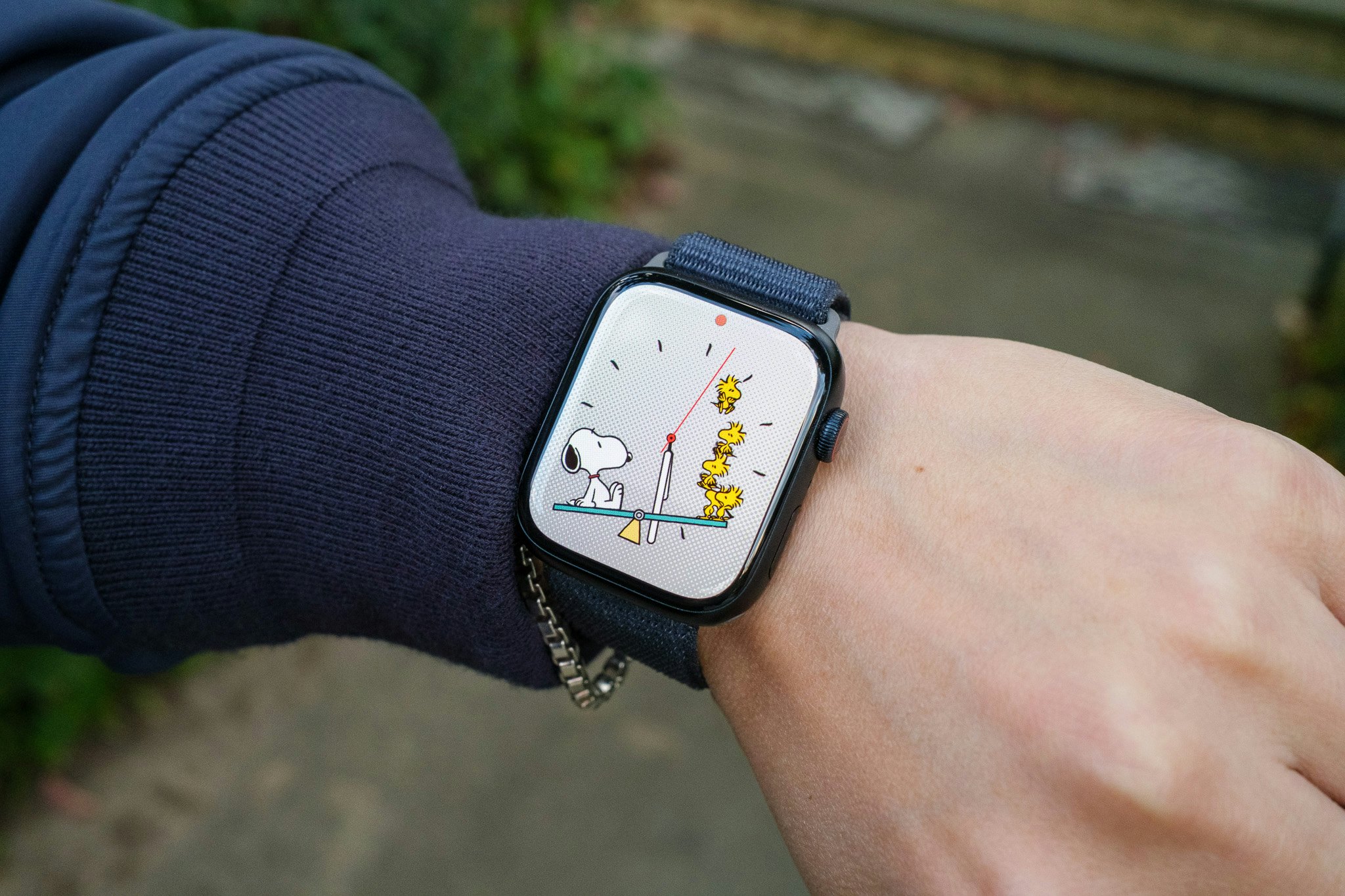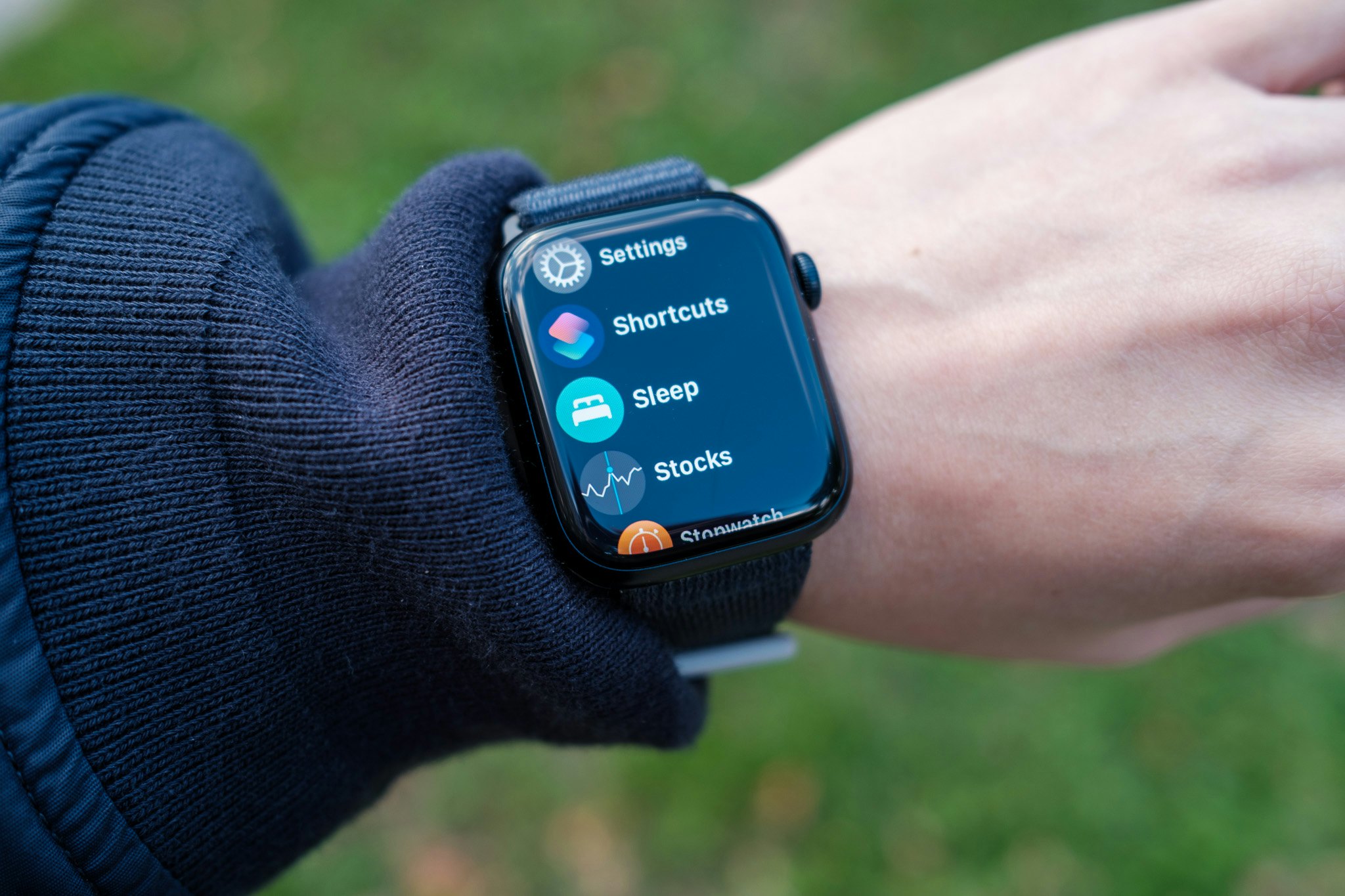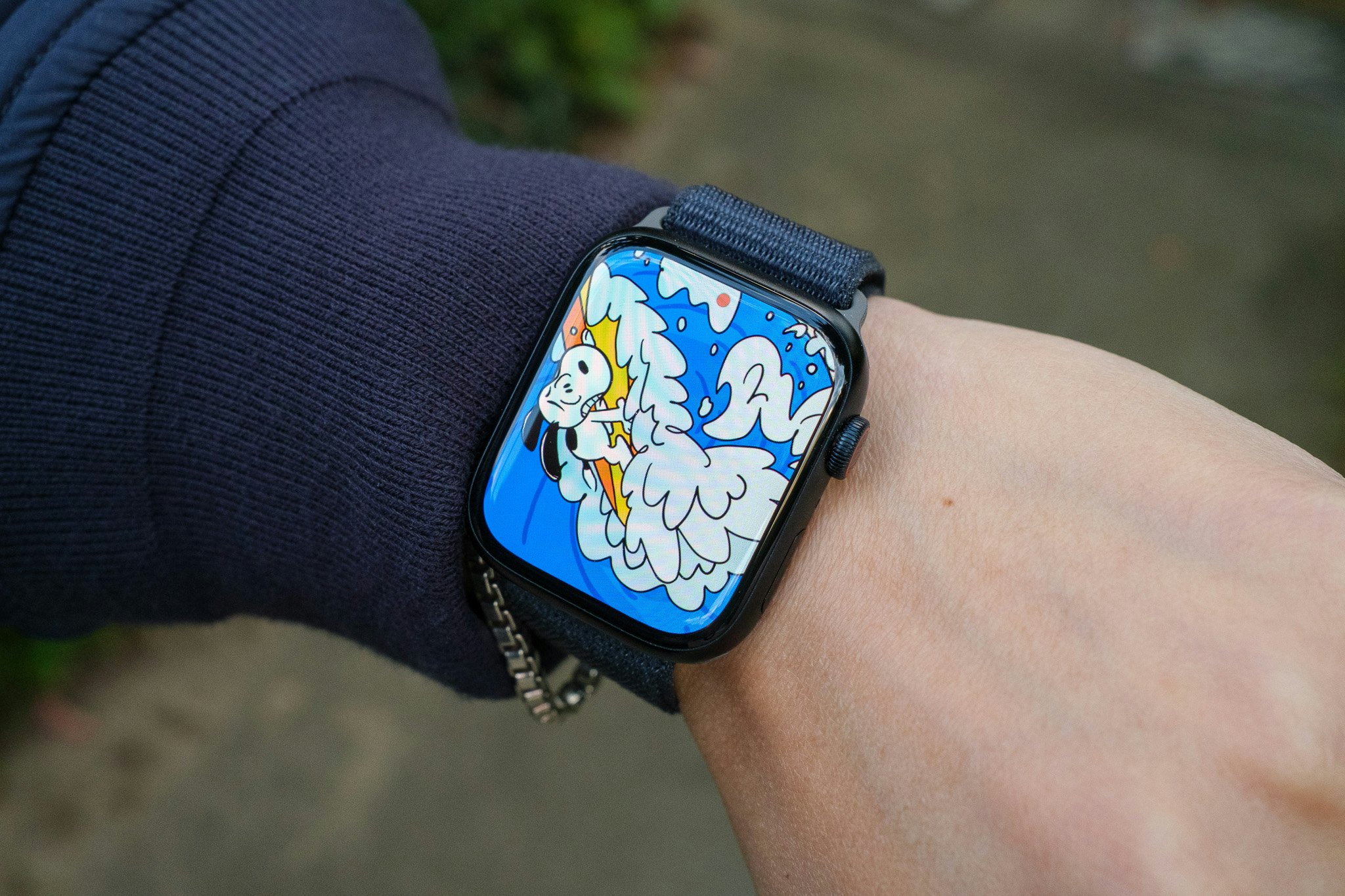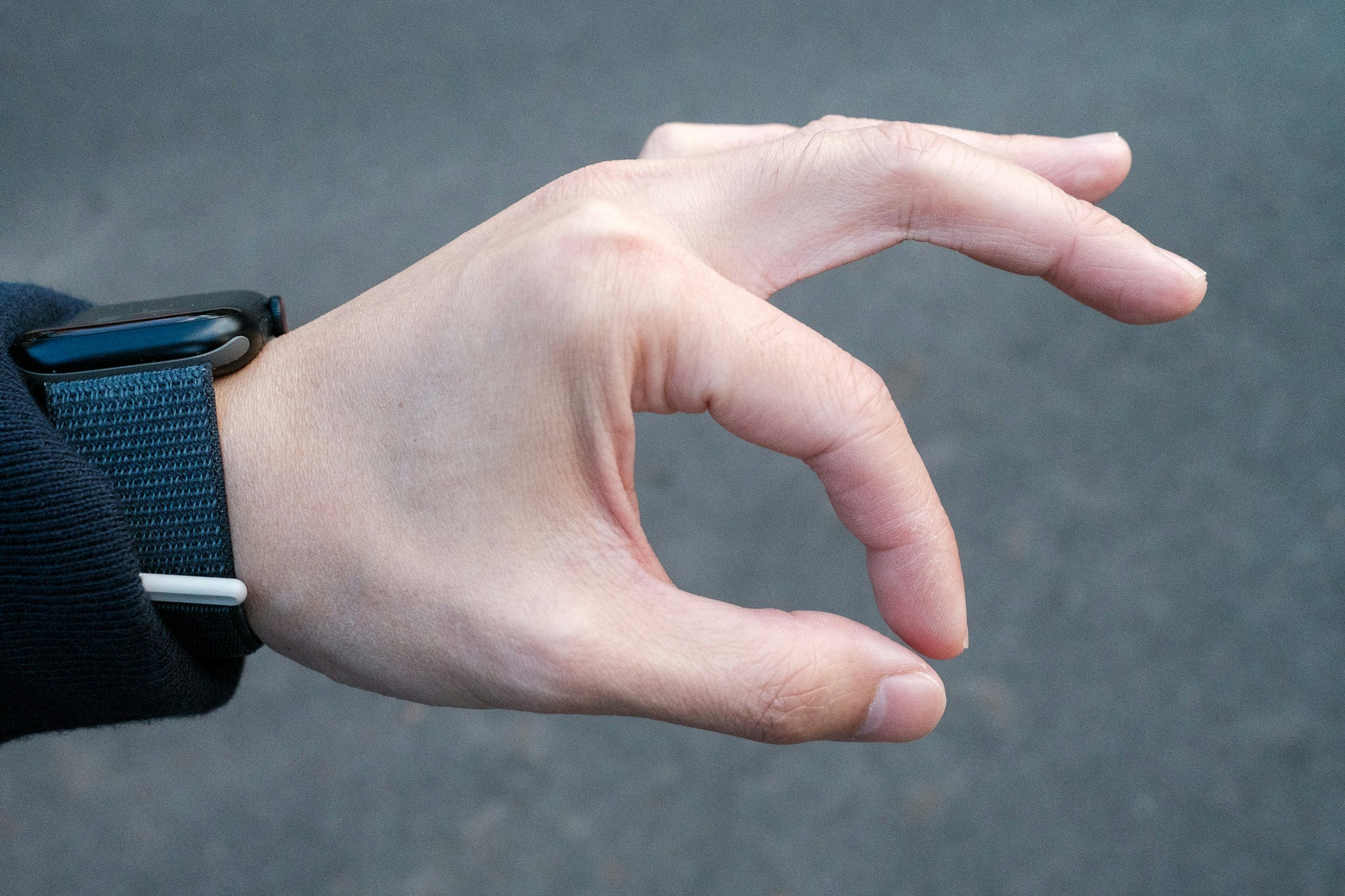
There’s nothing groundbreaking about the Apple Watch Series 9. It’s the ninth generation of a smartwatch that’s settled into its purpose as a fitness, health, and safety monitor.
That may sound disappointing to a gadgethead looking for a reason to get the latest and greatest every year, but what I wrote a few years ago is still true:
The Apple Watch isn’t going anywhere. However, when a product is mature, like the Apple Watch is, it’s more important than ever to evaluate new versions in the context of multi-year ownership than annually.
Like a new phone or laptop, the Apple Watch Series 9 is the same smartwatch hundreds of millions of people are familiar with — but better in many little ways that may not be noticeable at first.
Maybe Apple is saving a redesign and features for a 10th anniversary “Apple Watch X” but what I do know is that the buzzy “Double Tap” feature — for me at least — is more hyped than it really is.
Apple Watch Series 9

Better In Lots of Little Ways
I feel like I’m repeating myself whenever I review an iteration of a gadget, but it’s true: most new devices are a collection of many small conveniences. On their own, the features would be a tough sell. Together, though, the niceties add up.
I firmly believe that if you own an Apple Watch you don’t need to get a new one every year; they’re built to last for at least three to four years. That’s been true for the last few years and it’s still true this year. If you own an Apple Watch Series 8, the upgrades are relatively minor and probably not worth it. But if you’ve got an older Apple Watch, especially one that’s slowed down or doesn’t support the latest watchOS 10 features, then there might be enough here.
Even if you don’t care, it’s worth noting that the Apple Watch Series 9 (with aluminum case and sport band) is Apple’s first carbon neutral product, and made of 100 percent recycled aluminum and 82 percent recycled yarn. It’s all part of Apple’s efforts to make all of its products carbon neutral by 2030. I’ll be honest, I’m all for being more environmentally friendly whenever possible, but I also prefer stainless steel watches (smart or mechanical) on my wrist. But if green efforts are just as important as device functionality, it’s nice to know the Series 9 is less damaging to our planet.
Apple sent me a midnight (really, a navy blue) aluminum model to test. There’s also a new pink model that looks quite nice, too.

The Apple Watch Series 9 has a faster S9 “SiP” (System in Package chip) which is nice, but you really won’t notice much of a difference in terms of responsiveness unless your Apple Watch is at least 2-3 years old. I could see no real difference comparing a Series 9 with a Series 8; opening apps and flipping through them is much faster compared to a Series 4 or Series 6, though. Mostly, the S9 is futureproofing — ensuring it has the performance to handle software updates down the line.
The always-on OLED display on the Apple Watch Series 9 is twice as bright as the screen on a Series 8. I really liked this. In direct sunlight (like when I’m biking in the park or at the beach), I really appreciated the 2,000 nits of brightness on the Apple Watch Series 9. It’s possible I’ve been spoiled by the first-gen Apple Watch Ultra, which has the same brightness. Even if that’s the case, I’m really happy that I don’t need to squint to see watch face complications anymore.

Apple also doubled the storage to 64GB; the Series 8 has 32GB. It’s a small thing that many people aren’t even aware of mainly because most people aren’t downloading music or podcasts to their Apple Watch. But if you do want to free yourself from having to bring your iPhone with you on a run or to the gym, it’s easier to do so.
Another new feature: second-generation Ultra Wideband (UWB), which can be used for two things. You can turn on “Precision Finding” on an Apple Watch Series 9 and have it literally guide you toward finding a lost or misplaced iPhone 15. Precision Finding only works with iPhone 15s because they also have the second-gen UWB chip. It’s a handy feature that works similar to using Precision Finding for locating AirPods Pro 2 or an AirTag, and sure beats trying to find an iPhone 15 from sound alone. The Apple Watch Series 9 even buzzes as you get nearer to your lost device. The second-gen UWB chip also allows for playback controls to appear on your Series 9 if there’s a nearby HomePod playing audio and provides content suggestions in the Smart Stack card.
Double Tap Is Convenient
Coming out of the “Wonderlust” event in September, you might have had the impression that “Double Tap” is a game-changer. The new finger gesture on the Apple Watch Series 9 (and Apple Watch Ultra 2) lets you tap your index finger and thumb together twice to perform select actions like scrolling through widgets, answering and ending calls, or start and stopping timers.
It’s not.
As good as Double Tap is — it’s more accurate than not, and it sometimes even works with other fingers — you won’t always find yourself using it. Double Tap is really just another feature that’s “nice to have” when you need it.

When would you need it? When your non-watch hand is busy with something else. For example, I’m often cooking in the kitchen while talking to my mom through my Apple Watch. My right hand is usually touching foods (like raw meat) or holding a knife. In this specific scenario, using Double Tap to answer and end the call is more convenient than touching the display with my dirty fingers, washing my hand and then touching the screen, or using my nose (don’t lie, we’ve all done it).
Apple highlights several situations where Double Tap would be useful: snoozing an alarm, starting and stopping timers, playing and pausing music, responding to incoming messages directly using dictation, triggering the shutter button for an iPhone camera, moving through a Smart Stack widgets.

For a month, I really tried to acclimate myself to using Double Tap as much as possible. But I quickly noticed that unless my non-watch hand was being used or dirty, it was easier to just tap the display than pinching my index finger and thumb together twice. I never could get used to using a Double Tap to snooze a morning alarm underneath the covers. And there are some places inside of watchOS 10 where Double Tap doesn’t work; it’s not a replacement for touch or the Digital Crown.
In fairness, maybe you’re reading this and shaking your head in disagreement. Perhaps you could see yourself using Double Tap in more situations than me. Great, more power to you!
You might also be aware of two accessibility features called Assistive Touch and Quick Actions that work mostly like Double Tap, but not exactly. It’s true that Assistive Touch and Quick Actions work on pre-Series 9 Apple Watches whereas Double Tap requires a Series 9 or Ultra 2. But where Assistive Touch and Quick Actions differ from Double Tap differ is in the details. AppleInsider has a good breakdown of the differences.
Just Enough That’s New

Is the Apple Watch Series 9 a good smartwatch? Hell yeah, it is. It’s the best there is unless you get an Apple Watch Ultra/Ultra 2. But that also means a bigger device on your wrist. That the Series 9 is the best smartwatch shouldn’t surprise you. Apple has been ahead of the competition for years; Samsung’s Galaxy Watches or Google’s Pixel Watches are good, but aren’t really options for iPhone users.
Until Apple gives it a makeover or adds a new health sensor, the non-Ultra Apple Watches continue to have just enough new features. Not every feature is a must-have, but collectively, they make a well-rounded package.
As I said earlier, I don’t think there’s enough on the Series 9 to warrant an upgrade if you’ve got a Series 8 or even a Series 7. But if you own anything older than the Series 7 you will reap the rewards of several generations worth of improvements.







